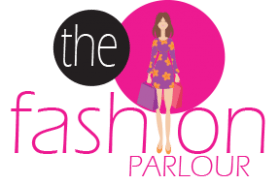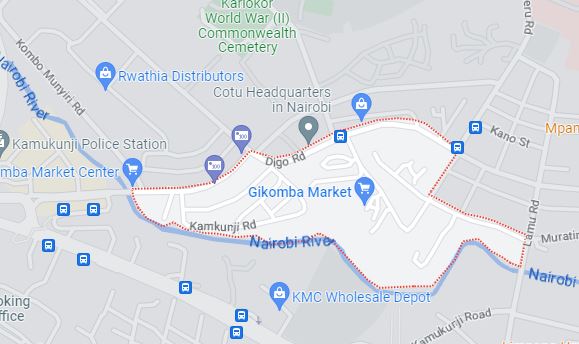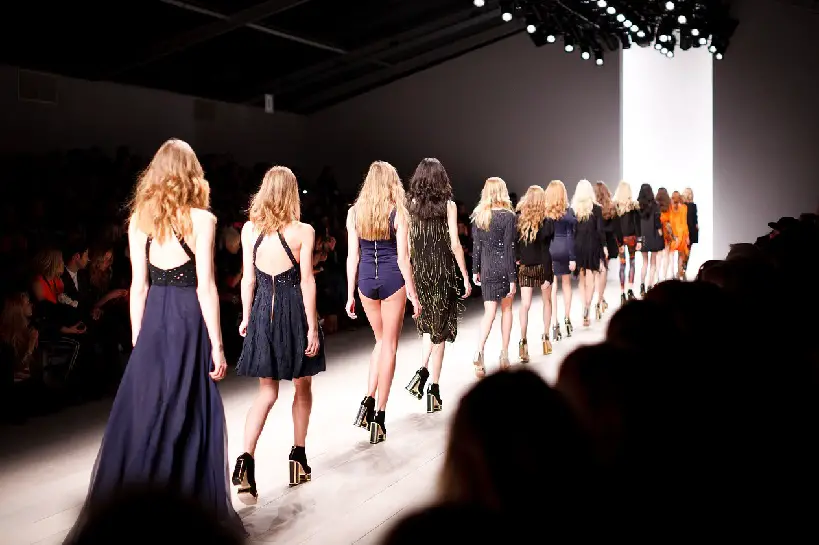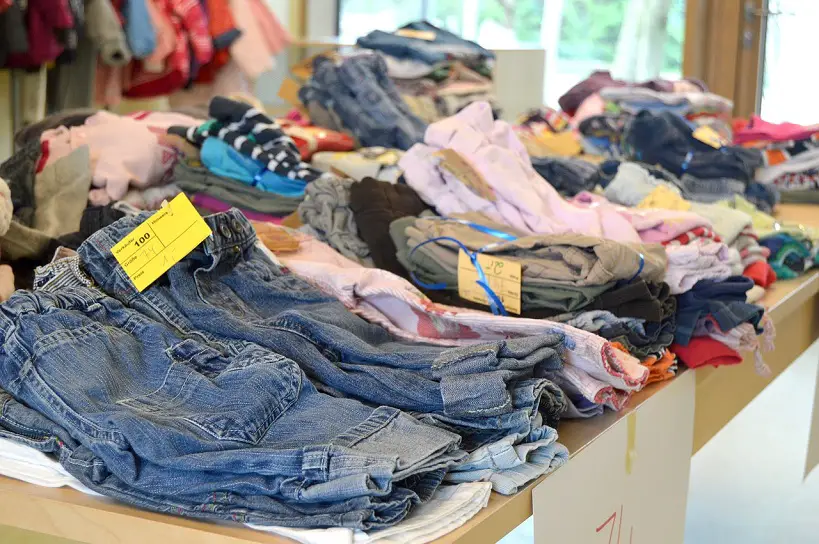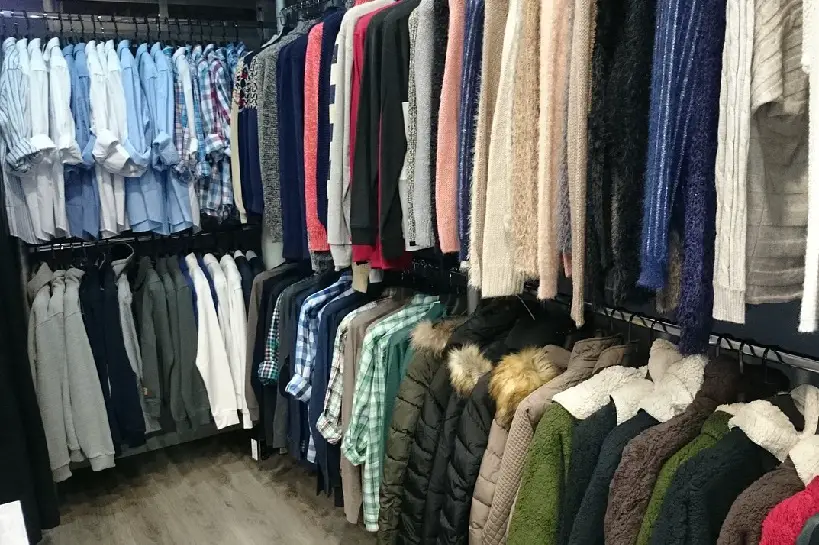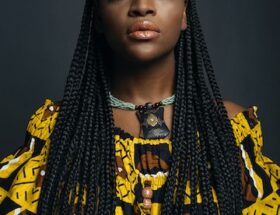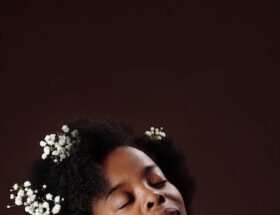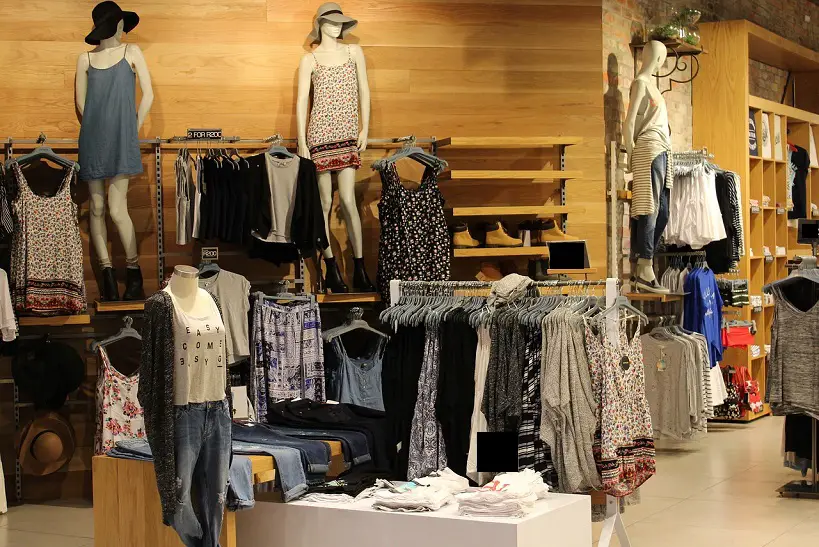The long, winding, narrow pathways of Gikomba Market are confusing. If you miss one exit, you find yourself on the Nairobi River crossing or Pumwani. In a previous article, we discussed this thrift shopping haven and described how to get there. Since a visual description is better, we’ve found 5 YouTubers with informative videos about shopping in Gikomba Market. They show you various ways to get there and where to buy various items.
Best YouTube Videos about Shopping in Gikomba Market
If you’ve been to Gikomba or heard about it, you know it’s not a place to vlog like you would in a city mall. Therefore, the vloggers who’ve done it, walked out with their phones intact and shared their experiences with us deserve a thank you. Here are some of the YouTubers with informative Gikomba content.
1. Kate Vlogs – Gikomba Shoes
You must have heard about Kate Vlogs if you love Gikomba hauls and thrifting content. The particular video that caught my attention is her vlog through Gikomba’s shoe area. In this videos, she gives directions to that place and states the average shoe price.
2. Nkatha K – Gikomba Handbags
Nkatha is a veteran of finding the best deals in Gikosh. She runs a thrift store on Instagram. You’ll enjoy the video she shows you where to get handbags for as low as Ksh. 100.
3. Shiko Makena – Gikomba Boots
The boots section is one place I’ll visit soon. Watching Shiko rummage through the piles in this video makes you wish you were there with her to carry some of those half boots home.
4. Zack Daniel – Baby clothes and bedding
It’s one place you’ll get great bargains, especially on newborn clothes. Zack guides you into that zone and samples baby clothes and bedding.
5. Lisa Gitau – Gikomba Skirts & Tshirts
Watch her sample some of the clothes in different zones in the market. She even takes you to a spot where you can have lunch in the market.
6. DIY with Joy – Gikomba Fabrics
Although it’s unrelated to clothes, we felt it’s a great video to show you another side of Gikomba. Therefore, if you’d like to upholster your sofas or other furniture, see where to get upholstery fabrics.
Have you been to these places, or are you planning to visit them?
Places You Should Know When Shopping in Gikomba Market
There are two ways to shop in this market: either buy Gikomba bales to take to your shop or select pieces from the multitude of traders in this market. Gikomba deals in second-hand utensils, clothes, shoes, books and bedding.
You can tell which side you are on by the type of items on display. For example, if there are clusters of vibanda selling shoes, you are close to the bridge and Kamukunji grounds.
Frequent fires and relocation of traders to create space for new buildings change the market layout every so often. Here is an overview of sections of Gikomba Market based on the type of items on sale.
Shoes
Gikomba shoe traders line the road opposite the Mosque and the D.O’s Office. On the perimeter of the D.O’s Office, shoes on sale are mainly rubber shoes and bathroom slippers. Another section to explore is the Majengo area.
You could also look for boots, high heels and sports shoes on the second row of vibandas opposite the COTU Headquarters along Digo Road. The first row has hats, socks, bedding, etc. The prices are mainly retail, going as low as KSh100 and as high as KSh800, but you can always bargain when buying wholesale.
You can also try your luck along the main entrance to Gikomba from Ladhies Road. Just after Equity Bank, on Sundays, you may spot a handful of traders along the road selling shoes for as low as KSh50.
Handbags
The main section dealing with handbags is accessible from the Nairobi stage just before you turn towards COTU Headquarters. Follow the road lined with traders dealing in kitenge and other fabrics, through a stuffy, narrow path of chicken coops and into a shaded pathway with new clothes. You will spot handbags along the route, and you can explore the rows of vibanda on either side.
On the right, the vibanda end at the riverbank. The handbags vary in design and size. A clutch bag goes for KSh200, while a large leather handbag may cost about KSh500. Purses and makeup bags cost about KSh100. Nevertheless, Gikomba Market is about bargains, so haggle until the price is right.
Baby wear
You can reach the open-air market dealing in baby wear from the Mosque or the Nairobi stage just next to the COTU Headquarters.
Branch off that main street into a path lined with vibanda selling curtains and bedding. After a short distance, there is a road to the right, with traders selling curtains and bedding.
This road proceeds to the fish market and the new market building. Stay on the main path, and just opposite the stands with heaps of handkerchiefs and undergarments, you will spot a passageway to the open-air market.
Alternatively, walk from the Nairobi stage to the Pumwani Mosque opposite the Kariobangi and Dandora Bus Stage. Just after the perimeter of the D.O’s Office, turn right and walk along the shoe market. A short distance into the market, make another right turn where there are piles of towels, and you will walk into the open-air market. Baby clothes sell for as low as KSh30.
Ladies trousers
You can find these in the open-air market I have explained above (where you will find baby clothes) or just next to the handbags area. Official trousers or jeans cost between KSh30 and KSh200. If you need to make alterations to the items you buy, tailors dot the perimeter of the open-air section. Alterations cost about KSh20, depending on the adjustments you need.
Stockings, socks and hats
A handful of vibanda along Digo Road, opposite COTU Headquarters, sell stockings, socks and hats. Socks cost about KSh20 a pair, while hats go for about KSh50.
Coats, jumpers and trench coats
When you proceed along the road that takes you to the handbags section, there are dozens of vibanda with light jumpers and trench coats.
Official skirts and blouses
Between the vibanda with coats, jumpers and handbags, you will find heaps of skirts and blouses. You could also try the open-air market that sells trousers and baby clothes to get chiffon tops, skirts and blazers. These skirts go for as low as KSh40. On Sundays, you can get chiffon tops for KSh10 and blazers at KSh50.
Popular Questions about Shopping in Gikomba Market
What is the best time to shop in Gikomba?
Be in Gikomba as early as 5:30 a.m. or earlier, depending on what you want to buy and whether it’s for your use or your business. You can visit any day of the week and any time if you’re buying for personal use.
However, if you’re looking for stock, be there early and possibly on Monday when they open new bales. It also depends on the item and when the seller opens new bales. As such, visit the market severally, find a supplier who can get you good stock, and they’ll tell you when they open new bales.
Where do you board matatus to Gikomba?
The Gikomba Market stage is at the junction of Mfangano Street and Luthuli Avenue. The Gikomba matatus ply the CBD-Majengo route. You’ll pay Ksh 50 from the CBD to Gikomba though this bus fare may change soon as everything else in the country.
Is Friday a good day to go to Gikomba?
Yes, if you hope to buy clothing items like blouses, skirts, and t-shirt tops, as they sell these daily. However, you might find dead stock, accumulated through the week, they want to clear before opening new stock on Saturday. It’s best to find a seller who opens new bales on Friday.
Gikomba Market opens all days of the week. Nevertheless, on some days, most traders sell old stock from other busy days. On average, Monday, Tuesday, Friday, and Saturday are great days to visit Gikomba. Also, you can get good stuff on Saturdays, especially in the open-air areas.
When you become a regular buyer, ask your supplier when they open new bales so you can get camera pieces. On Saturdays, buyers throng the market, so most traders open new bales. Some sections are closed on Sundays, and the ones open mainly sell Saturday stock. Therefore, Sunday is the best day to visit Gikomba to buy items for as low as KSh10.
During the week, the market is open as early as 5 a.m. It gives a new meaning to the cliché of the early bird as scores of buyers jostle for camera pieces before dawn, using all manner of illumination from torches to phone flashlights to inspect the items they grab. The vast section that sells handbags often opens later, around 7 a.m.
